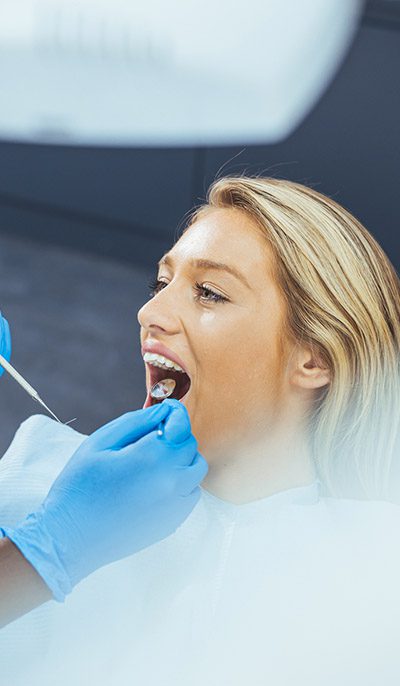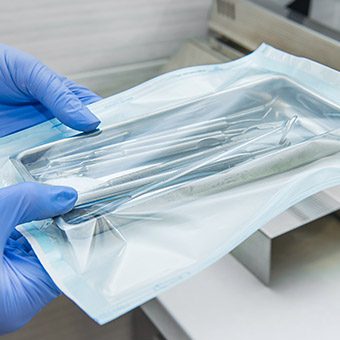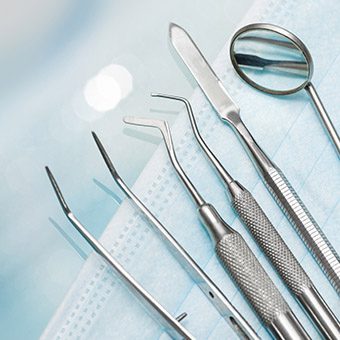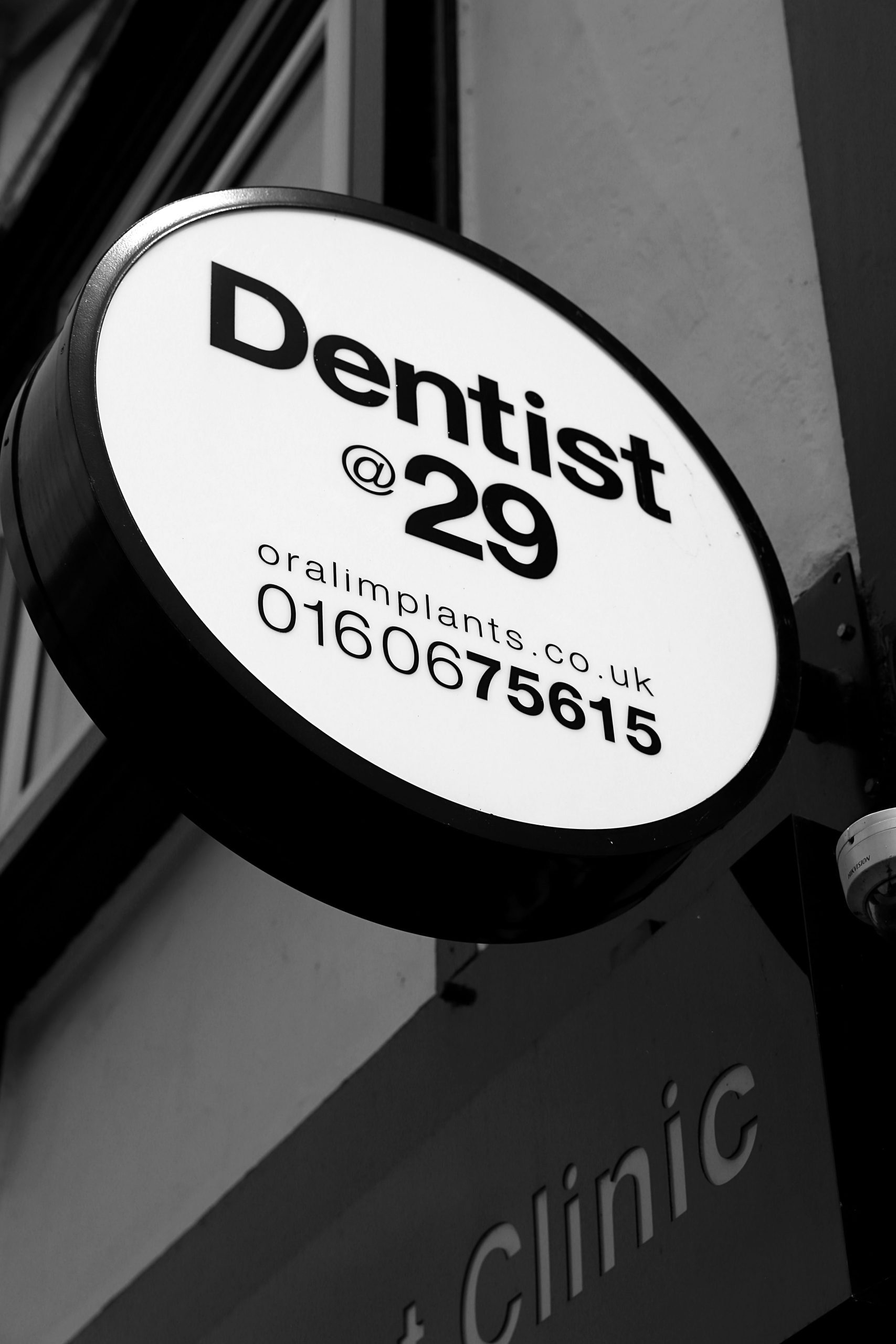




Dedicated sterilization room on site
We have a dedicated room for instrument cleaning and sterilization and we follow the best practice guidelines for instrumentation cleaning. One third of Dr Young’s PhD was based on research to reduce bacterial contamination at the time of implant surgery. Dr Young carried out 2 randomized controlled trials (RCT’s) which led to the development of clinical protocols that have been adopted internationally to minimize the risk of bacterial contamination during implant surgery.
Instruments
Whenever possible we use single use disposable instruments which are sterile. Non-disposal instrumentation goes through rigorous cleaning procedures and this includes a washer-disinfector, followed by sterilization in a system B vacuum autoclave.
Instrument Disinfection
We use a Medisafe washer disinfector to thoroughly clean all instruments as the 1st stage in cleaning instruments
Instrument Sterilization
When the instruments come out of the washer disinfector they are placed into a Burtons system B vacuum autoclave for sterilization.
Air Quality Control
The surgery has a Bacticlean ultra-violet disinfection system installed. Bacticlean helps to rid the air of airborne bacteria and viruses such as MRSA, swine flu, bird flu and the common cold.
Post Surgical Infection Rates
The general literature indicates that following oral surgery procedures to remove difficult teeth, the risk of dry socket or delayed painful healing runs between 7-17%. An audit of our surgical procedures shows a post operative dry socket or delayed healing is currently running at 2%. We employ a very stringent pre and post operative home care regime which contributes to our very high success rate in avoiding this painful complication.
Cross Infection Control
We have a dedicated decontamination and sterilisation room where we work to meet the required sterilisation + cross-infection control standards. Dr Young’s PhD comprised of a substantial body of work on bacterial aspects of oral surgery. His detailed knowledge of microbiology has lead him to pay particularly emphasis on cross-infection control for all aspects of oral surgery and implant dentistry.
Implant Success Rates
We have recorded just 8 implant failures in the last 9 years. Our high success rates are achieved by thorough planning; paying careful attention to ensuring there is no infection in the bone or gum at the time surgery is performed and employing stringent cross-infection control.
MRSA
None of our treated patients have suffered with any superbug infections. We attribute this to our rigorous cleaning procedures and continue to attain this excellent track record.
References
1. Young, M.P.J., Korachi, M., Carter, D.H., Worthington, H.V., McCord, J.F., & Drucker, D.B. The effects of an immediately pre-surgical chlorhexidine oral rinse on the bacterial contaminants of bone debris collected during dental implant surgery. (2002) Clinical Oral Implants Research; 13:20-29.
2. Young, M.P.J., Korachi, M., Carter, D.H., Worthington, H.V., & Drucker, D.B. (2001) Microbial analysis of bone collected during dental implant surgery: a clinical and laboratory study. Clinical Oral Implants Research; 12 (2): 95-103



*By completing this form, you are consenting for us to contact you via email or phone
Address
Dr P Young BDS PhD specialist in oral surgery
29 Castle Street, Northwich, Cheshire, CW8 1BA
Tel / Fax Reception Staff
Copyright Oral Implants Ltd. All rights reserved. Website by Carrie-ann Sudlow - Privacy Statement
